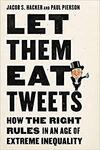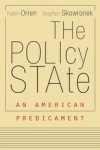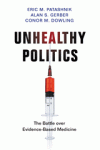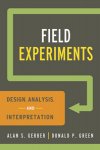Publications
About Our Publications
On this page you will find a list of publications by ISPS Affiliates, including peer-reviewed journal articles, policy briefs, and working papers.
When possible, Publications are linked to Projects and Data via the ISPS KnowledgeBase.
| Title | Author(s) |
Discipline |
Publication | Year |
|---|---|---|---|---|
| Persuading US White Evangelicals to Vaccinate for COVID-19: Testing Message Effectiveness in Fall 2020 and Spring 2021 |
Scott E. Bokemper, Alan S. Gerber, Saad B. Omer, Gregory A. Huber |
Political Science | Proceedings of the National Academy of Sciences | 2021 |
| Adaptive Experimental Design: Prospects and Applications in Political Science |
Molly Offer‐Westort, Alexander Coppock, Donald P. Green |
Political Science | American Journal of Political Science | 2021 |
| Do Phone Calls Increase Voter Turnout? An Update |
Alan S. Gerber, Donald P. Green |
Political Science | Annals of the American Academy for Political and Social Science | 2005 |
| It's Largely a Rigged System: Voter Confidence and the Winner Effect in 2016 |
Betsy Sinclair, Steven S. Smith, and Patrick D. Tucker |
Political Science | Political Research Quarterly | 2018 |
| Reporting Guidelines for Experimental Research: A Report from the Experimental Research Section Standards Committee |
Alan Gerber, Kevin Arceneaux, Cheryl Boudreau, Conor Dowling, Sunshine Hillygus, Thomas Palfrey, Daniel R. Biggers and David J. Hendry |
Political Science | Journal of Experimental Political Science | 2014 |
| Primary Voters Versus Caucus Goers and the Peripheral Motivations of Political Participation |
Eitan Hersh |
Political Science | Political Behavior | 2012 |
| Messages Designed to Increase Perceived Electoral Closeness Increase Turnout |
Daniel R. Biggers, David J. Hendry, and Gregory A. Huber |
Political Science | American Politics Research | 2023 |
| What Have We Learned about Gender from Candidate Choice Experiments? A Meta-Analysis of Sixty-Seven Factorial Survey Experiments |
Susanne Schwarz and Alexander Coppock |
Political Science | Journal of Politics | 2022 |
| Do Congressional Candidates Have Reverse Coattails? Evidence from a Regression Discontinuity Design |
David E. Broockman |
Political Science | Political Analysis | 2009 |
| The Generalizability of Online Experiments Conducted During the COVID-19 Pandemic |
Kyle Peyton, Gregory A. Huber, and Alexander Coppock |
Political Science | Journal of Experimental Political Science | 2021 |
| Response to Franz, Freedman, Goldstein, and Ridout |
Jonathan S. Krasno, Donald P. Green |
Political Science | Journal of Politics | 2008 |
| Avoiding Post-Treatment Bias in Audit Experiments |
Alexander E. Coppock |
Political Science | Journal of Experimental Political Science | 2019 |
| Partisanship and the Allocation of Federal Spending: Do Same-Party Legislators or Voters Benefit from Shared Party Affiliation with the President and House Majority? |
Adam M. Dynes and Gregory A. Huber |
Political Science | American Political Science Review | 2015 |
| The Politicization of Evidence-Based Medicine: The Limits of Pragmatic Problem Solving in an Era of Polarization |
Alan S. Gerber and Eric M. Patashnik |
Political Science | California Journal of Politics and Policy | 2011 |
| Affect, Social Pressure and Prosocial Motivation: Field Experimental Evidence of the Mobilizing Effects of Pride, Shame and Publicizing Voting Behavior |
Costas Panagopulos |
Political Science | Political Behavior | 2010 |
| The Enduring Effects of Social Pressure: Tracking Campaign Experiments Over a Series of Elections |
Tiffany C. Davenport, Alan S. Gerber, Donald P. Green, Christopher W. Larimer, Christopher B. Mann and Costas Panagopoulos |
Political Science | Political Behavior | 2010 |
| Irregular Transparency? An Experiment Involving Mexico's Freedom of Information Law |
Paul Lagunes |
Political Science | ISPS working paper | 2009 |
| Why People Vote: Estimating the Social Returns to Voting |
Alan S. Gerber, Gregory A. Huber, David Doherty and Conor M. Dowling |
Political Science | British Journal of Political Science | 2016 |
| Cluster–Robust Variance Estimation for Dyadic Data |
Peter M. Aronow, Cyrus Samii, and Valentina A. Assenova |
Political Science | Political Analysis | 2015 |
| Assessing the Programmatic Equivalence Assumption in Question Wording Experiments: Understanding Why Americans Like Assistance to the Poor More Than Welfare |
Gregory A. Huber and Celia Paris |
Political Science | Public Opinion Quarterly | 2013 |
ISPS Working Paper Series
ISPS advances interdisciplinary research in the social sciences that aims to shape public policy and inform democratic deliberation. The ISPS network includes scholars and students from many departments in the Faculty of Arts and Sciences and from Yale’s graduate and professional schools as well as select experts from other institutions. The ISPS Working Paper Series provides a platform for ISPS affiliates to make their work available for public consumption and discussion.
Featured Books by ISPS Faculty
ISPS Sponsored Publications
ISPS Politics & Policy Book Series: A series striving to place policy- and law-making in historical and comparative perspective, reflecting the broad, multidisciplinary character of ISPS.
ISPS Journal: A biannual publication that serves to highlight ISPS scholars’ publications and as a development piece for foundations and interested donors.
GOTV website: A website compiling results from a wide array of voter mobilization field experiments. Findings from these scientifically measured studies of various Get-Out-the-Vote methods offer valuable insight into which methods are most effective in mobilizing voter turnout (Note: the website indexes GOTV experiments published before 2006).
The Bulletin of Yale University includes several issues devoted to ISPS (PDF): 2000-2002, 2002-2004, 2004-2006, and 2006-2008.






